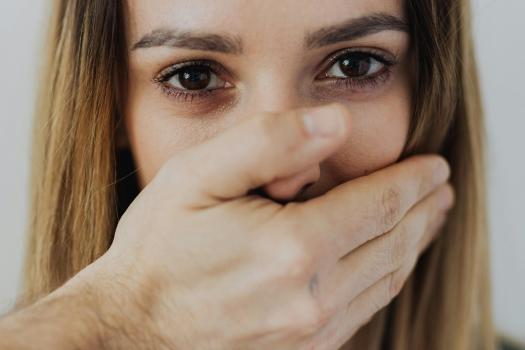'How many grandchildren do you have?’ is a casual question for most grandparents, but for John* and Kate it is a very painful one. Kate’s response is to gloss over the facts. However, John will give the real answer, ‘We have three grandchildren, but we haven’t seen our oldest two for 14 years, even though they only live 10 minutes away. Our daughter-in-law has cut us out of our grandchildren’s lives. At first, we tried writing and calling but it was too upsetting, so now we’ve given up.’ John admits that most people will assume it is their fault – ‘I know I would.’
The couple are still bewildered by how it happened. ‘We once wrote to our son and daughter-in-law and said, “What is it we’ve done wrong?”’ says Kate. ‘And they replied, “That’s exactly your problem. You don’t know what you’ve done wrong.”’
What surprises them now is how normal life once was. John, 76, worked as a sales rep, Kate, 74, as a secretary. They had three children: Michael, 49, David, 47, and Clare, 37.
‘It wasn’t the Waltons,’ says Kate, ‘but we got on.’
In 1996, Michael married Kirsty. ‘We liked her,’ says Kate. However, without them noticing it, Kirsty started to pull back from the family. ‘She’d say she couldn’t come around for supper because she had things to do at home. Michael would come on his own. But we never fell out.’
The turning point was the arrival of Nell in 2002. It was a happy time, but Kate and John had other worries. Their daughter Clare, then in her early 20s, was in hospital with viral meningitis. The conflicting claims on their attention came to form the core of their daughter-in-law’s complaint – ‘that we didn’t care’. They know this because Kirsty ‘let rip’ with an inventory of grievances when Nell was barely four weeks old.
‘We found out that she’d kept a diary of everything we’d said or done that she took exception to,’ Kate explains. Small things. For instance, Kate promised to buy a changing mat but did not get around to it before Nell was born. ‘I didn’t attach much importance to it,’ she says. ‘It’s so ludicrous, so trivial. But she raked up things from the past –we hadn’t done this, hadn’t done that.’
‘We know our grandchildren’s names and when their birthdays are – but that’s it’ John and Kate hadn’t helped them out financially. (‘A lie,’ says Kate, ‘we’d given them a few thousand pounds for a deposit for the flat.) Had not told their daughter-in-law what they wanted to be called – Grandma and Grandpa or Nanny and Pap. ‘This being our first grandchild, we hadn’t thought about it. I said, “Whatever you like.” But that was interpreted as us not caring.’
Bit by bit they were shut out of their granddaughter’s life. When they asked if they could see the baby, Kirsty said she was asleep, or they were busy, or that Michael would phone them.
‘Michael used to bring her here once every month or so, but he’d soon be looking at his watch. He had to get back,’ says John.
By the time their grandson was born in 2005 when Nell was three, relations were so soured that they had only seen him twice in his life: once at a party to celebrate his arrival and once when he was five months old. He is now 13. Their last memory of Nell, 16, is as a three-year-old.
The fallout has been dramatic. Never seeing the grandchildren is bad enough, but they don’t know their likes, dislikes, or even what they look like. ‘We know their names and their birthdays and that’s it,’ says John.
They say that David and Clare are ‘disgusted’ with their brother and that while they all see each other regularly - somewhat unexpectedly the whole family meets secretly every six weeks or so – John and Kate avoid mentioning the things that should be discussed, such as why they haven’t been allowed to see their grandchildren for nearly 14 years and how hurt and furious this makes them feel. When they do try to confront Michael, he ‘puts his head down and it goes quiet for 30 seconds and then the subject is changed and we get on with the evening’, says John.
‘Now, with Facebook, people say they’ve seen photos of my grandchildren, and someone said to me, “Do you want me to show you pictures?” I said, “No.” I don’t see the point in torturing myself,’ says Kate. ‘We stopped sending birthday cards and birthday money when our granddaughter was about four,’ she says. ‘But we have left money for them in our will. If the opportunity ever arose, we would want them to know that we always wanted to see them. This was not our doing.’






